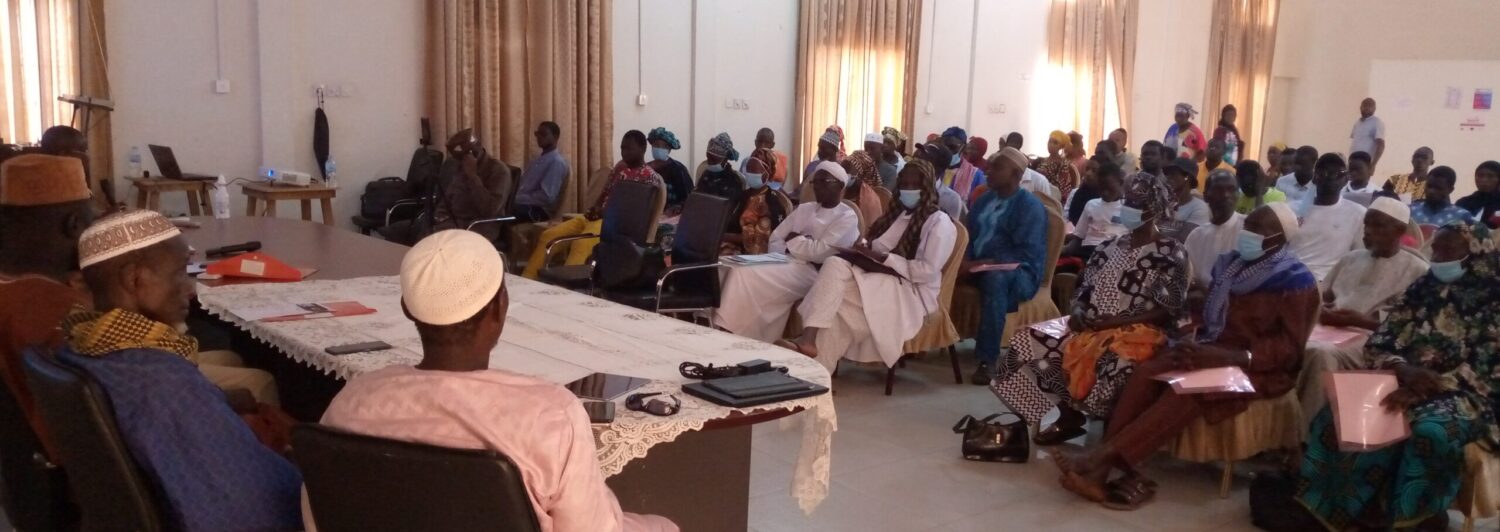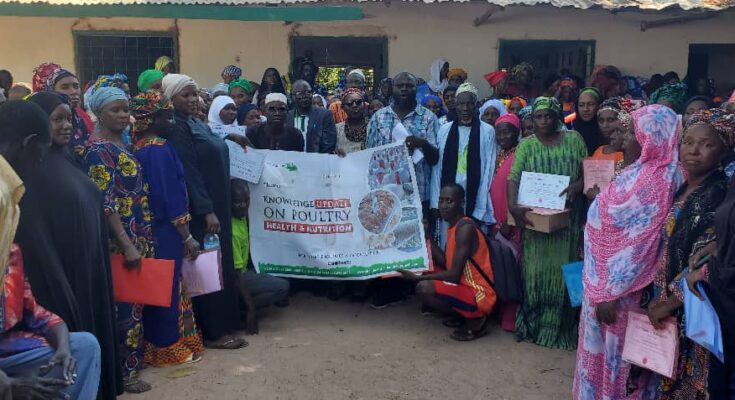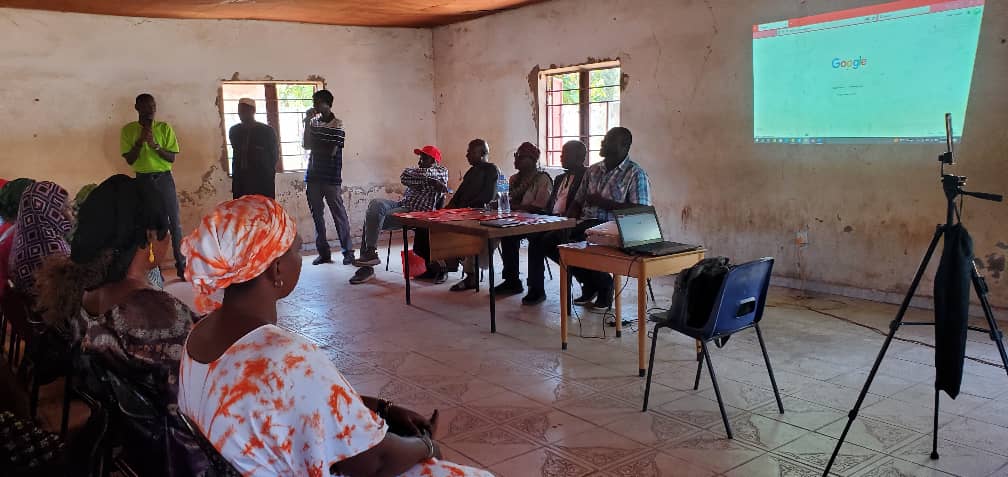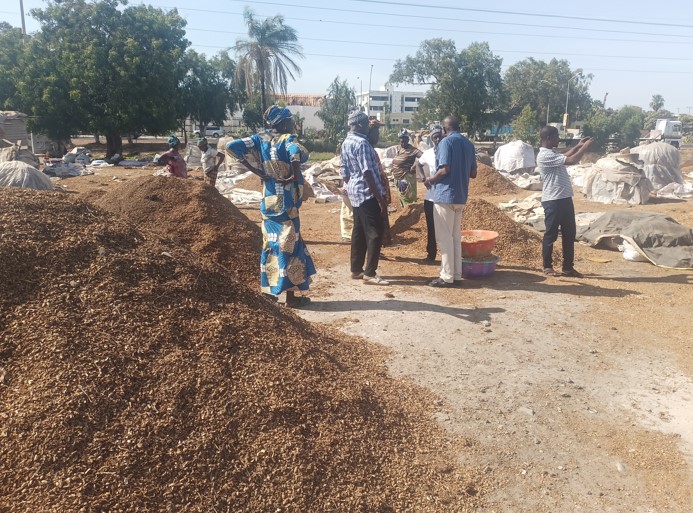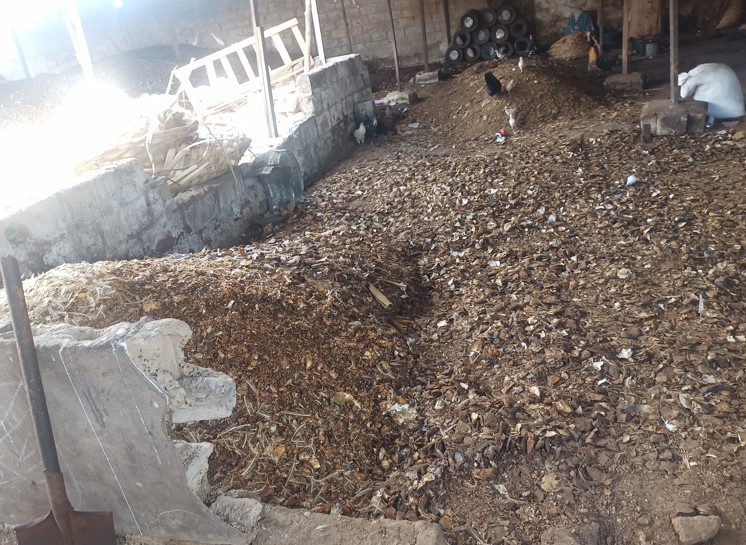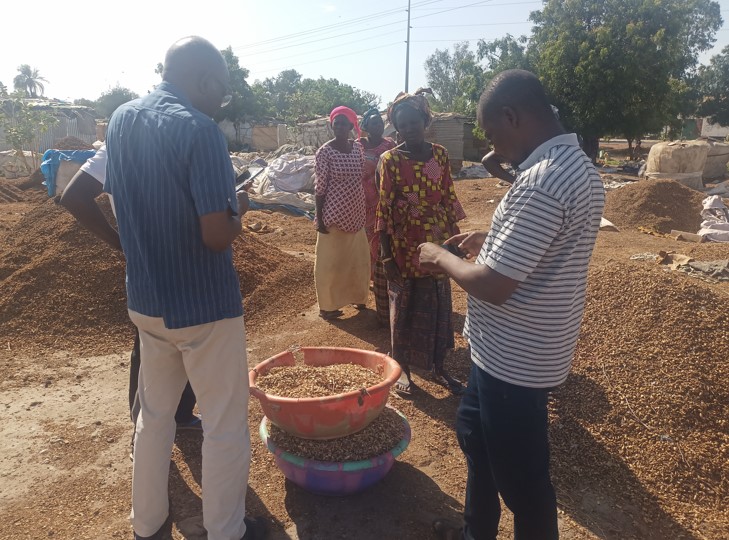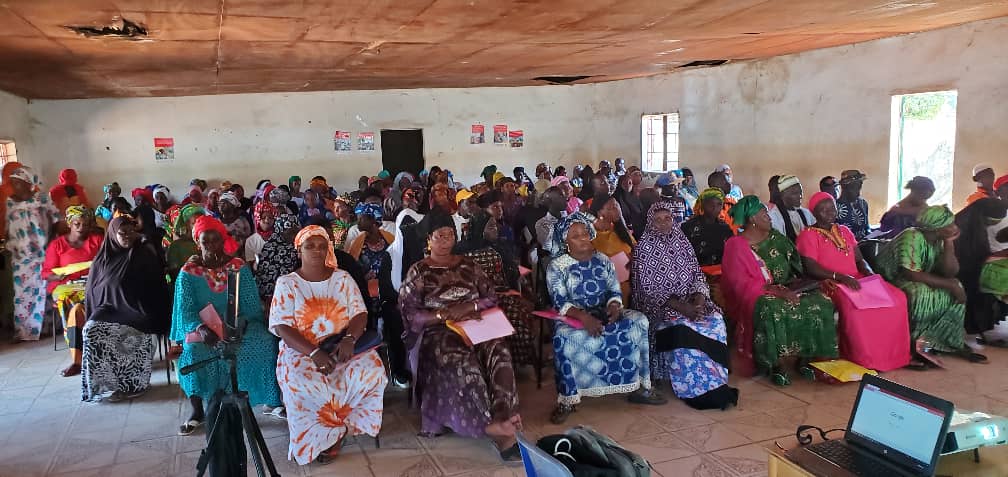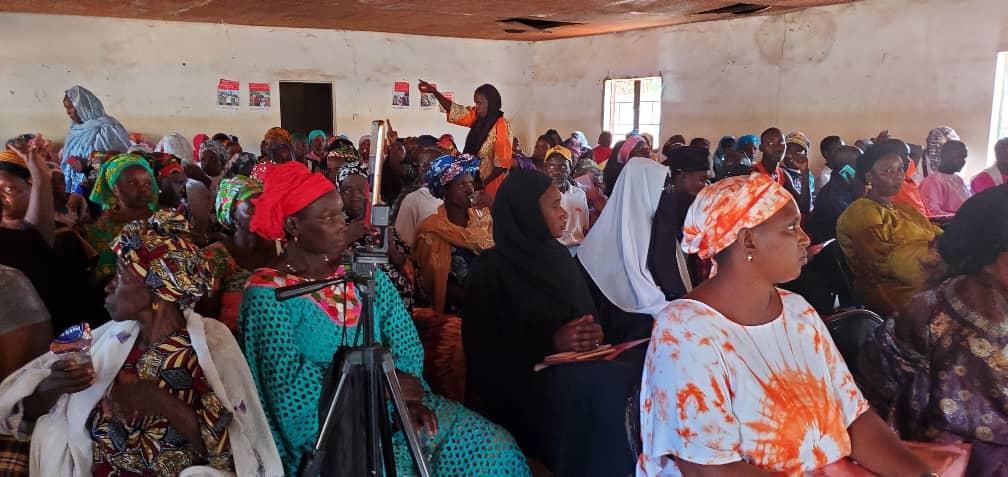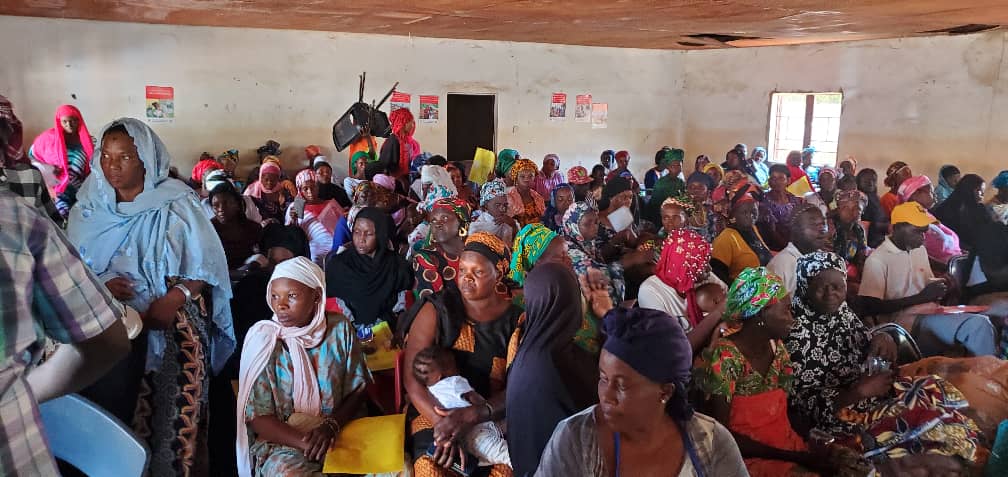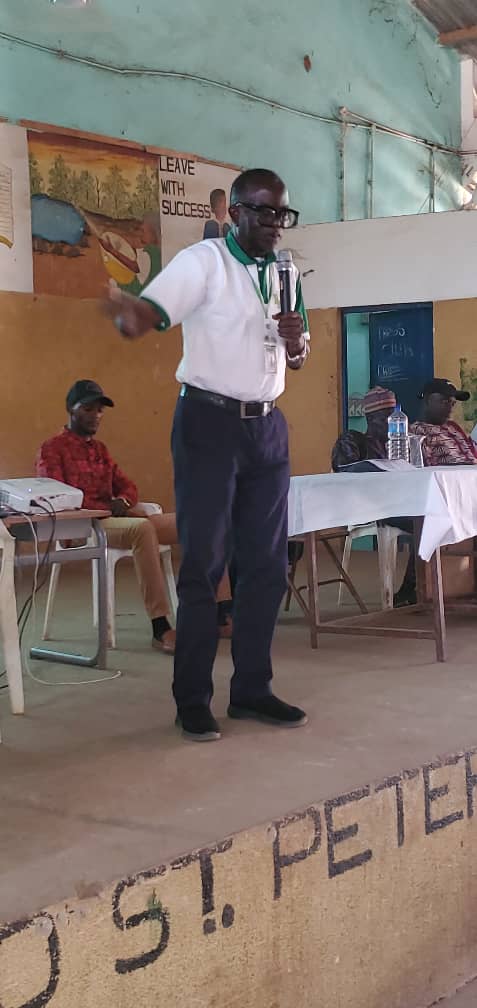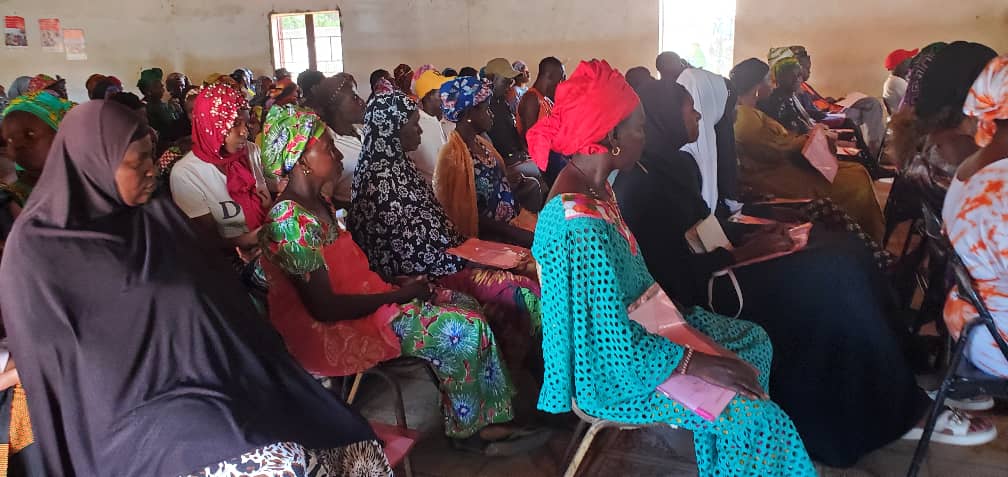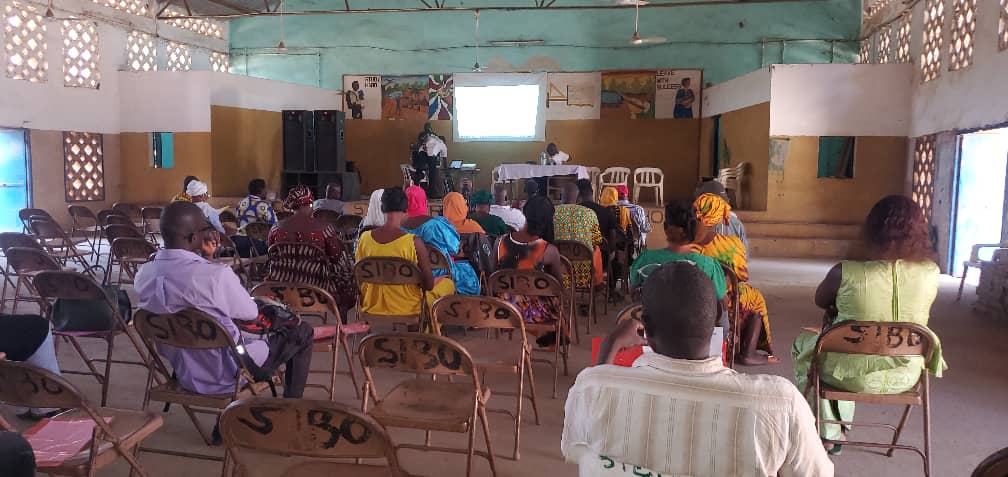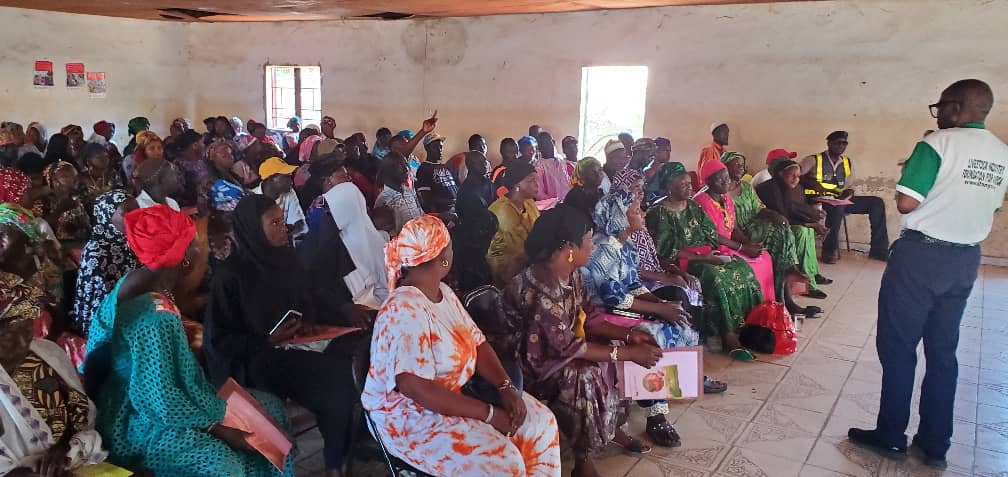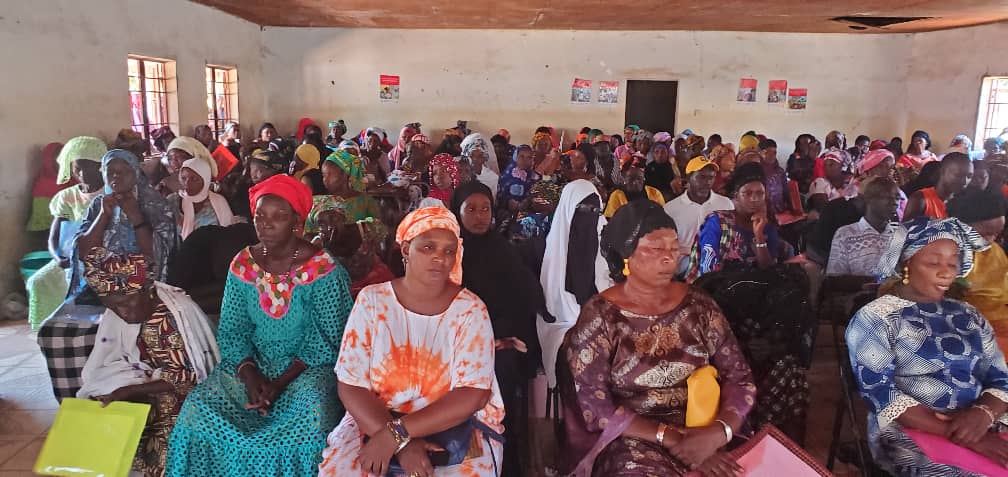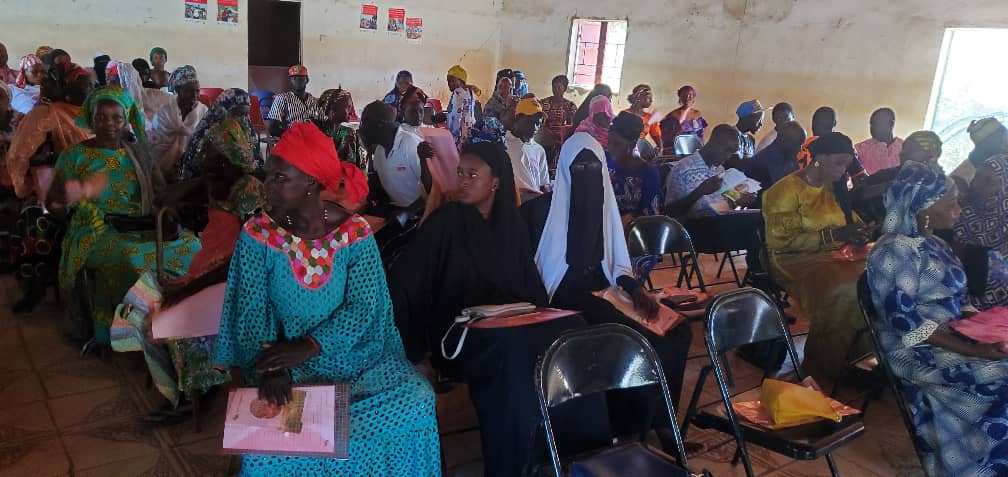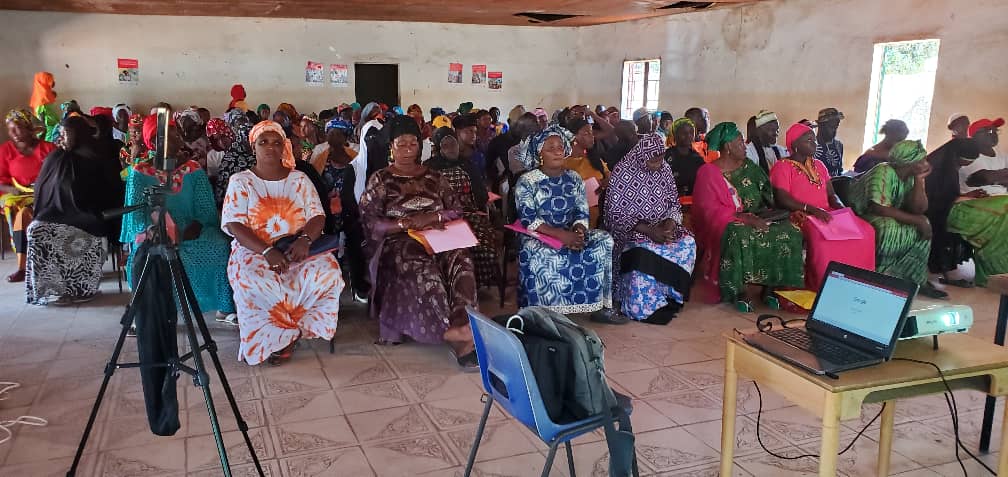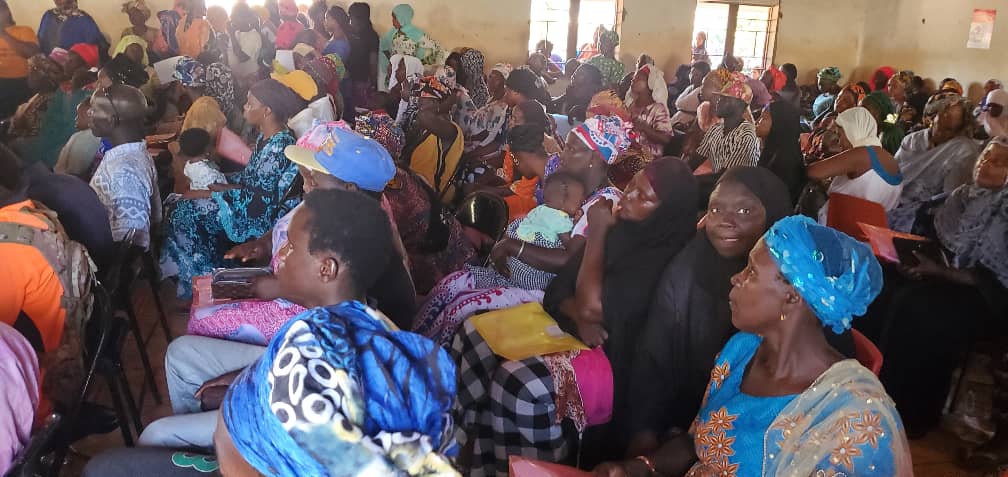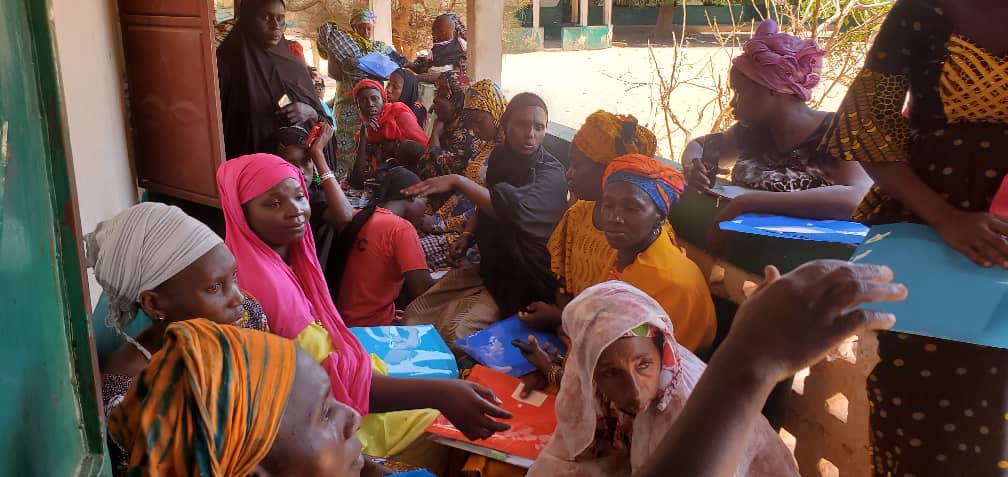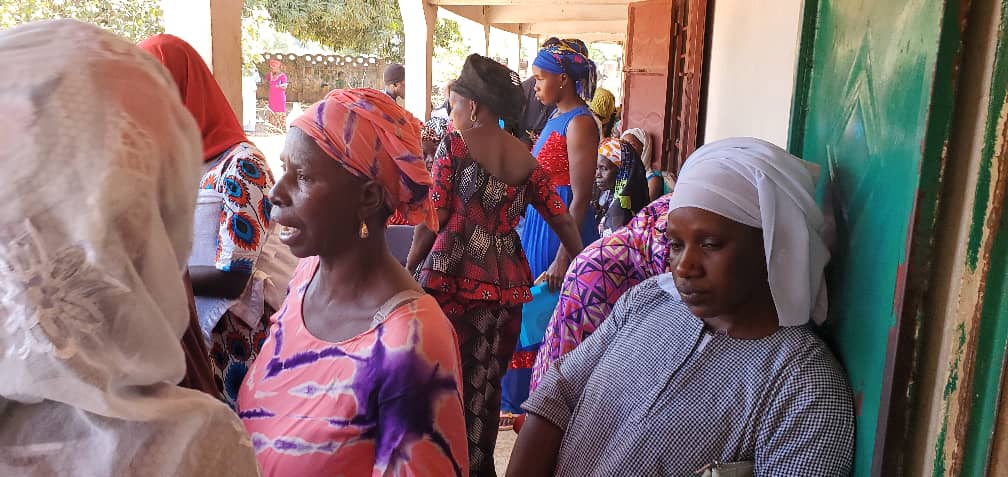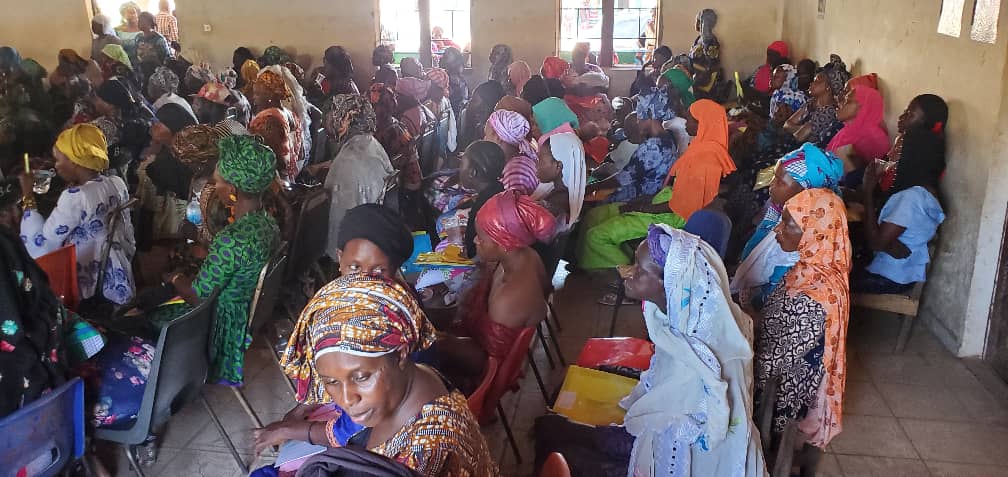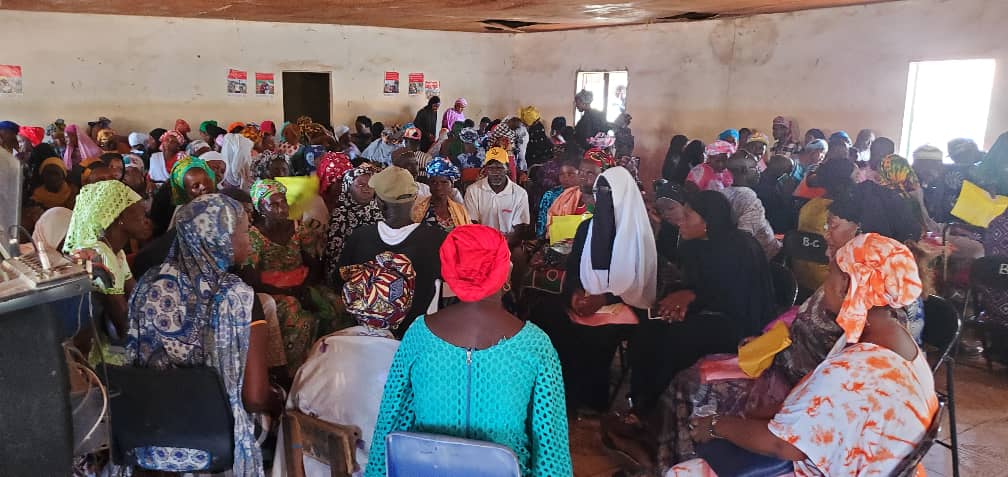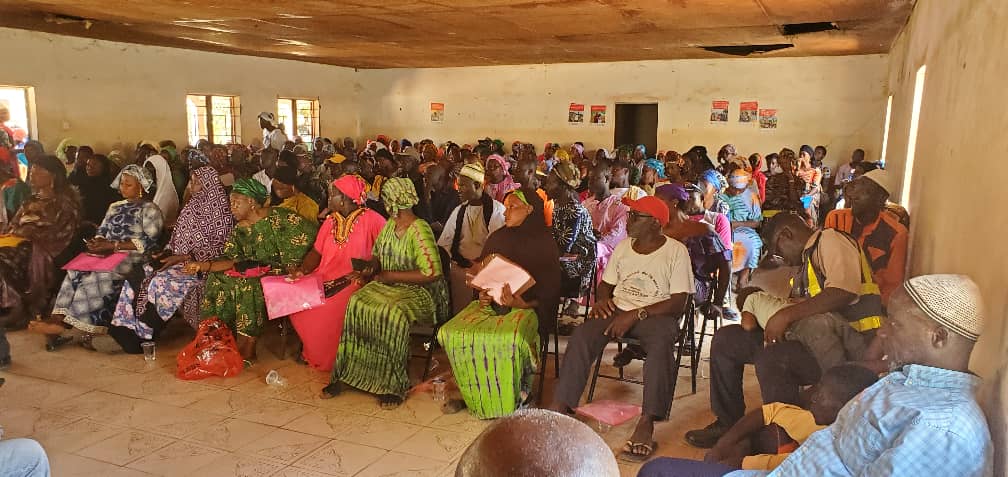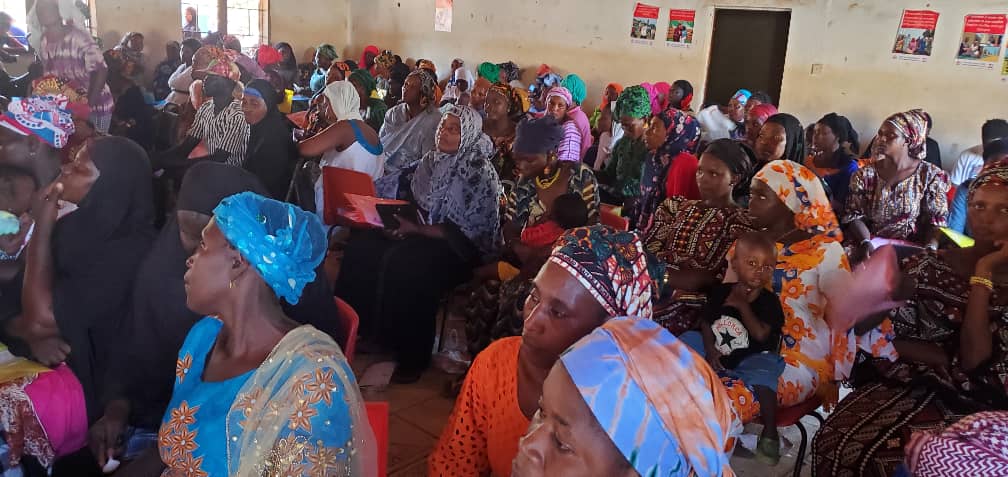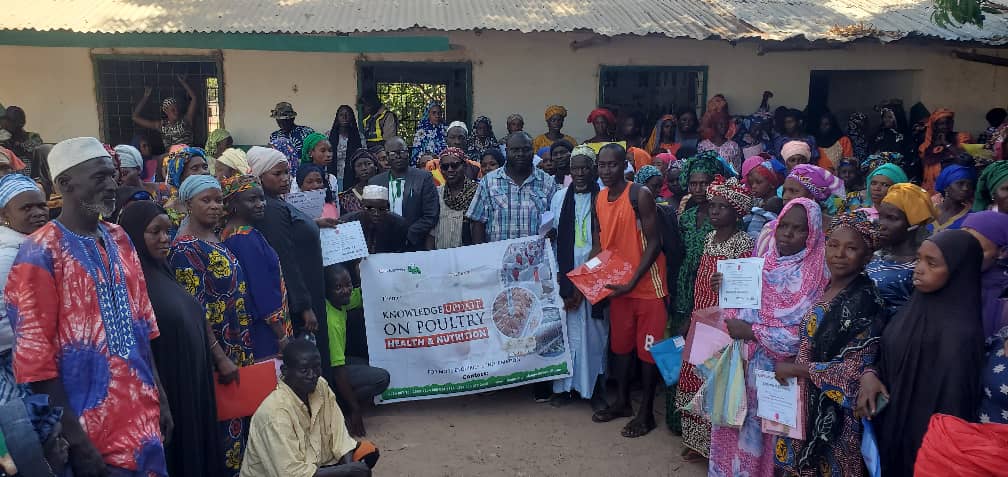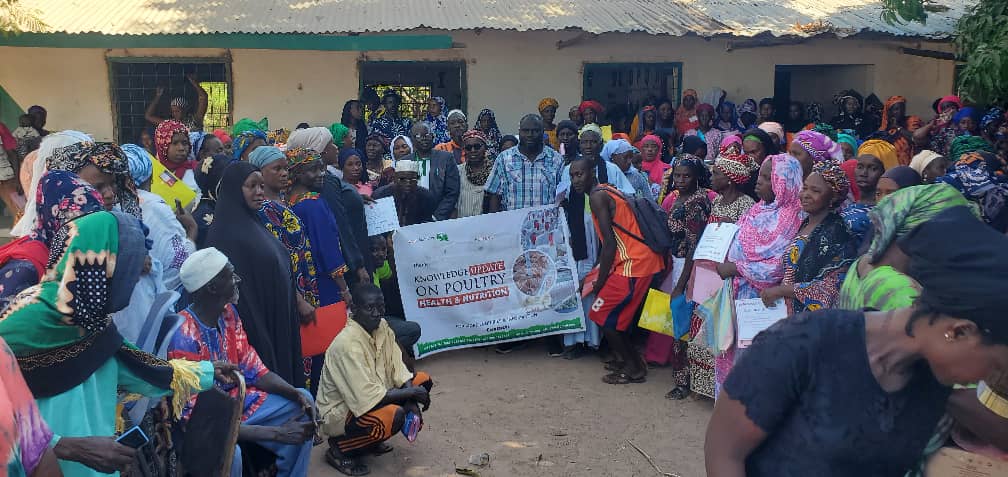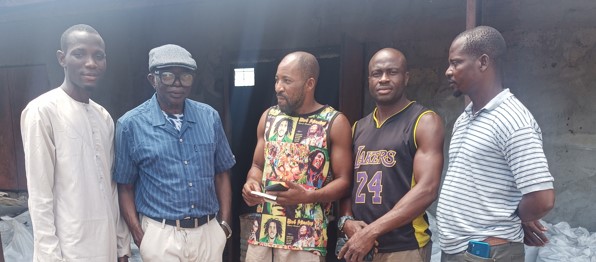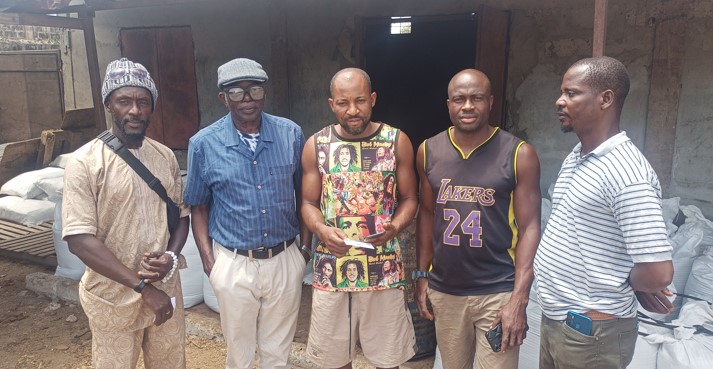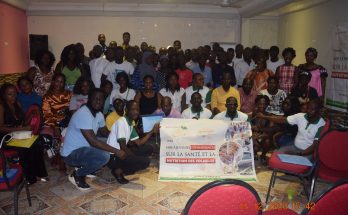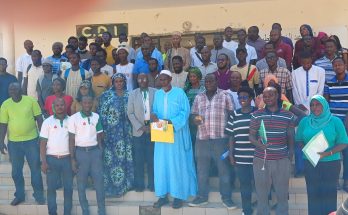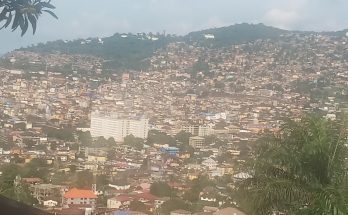The Livestock Industry Foundation for Africa (LIFA) successfully held a one-day free training session in The Gambia on the 6th and 8th of June, 2023, in the townships of Lamin and Sibanor. The knowledge update on poultry health and nutrition program aims to improve the sustainability of livestock livelihoods in Sub-Saharan Africa. This is one of the techniques advocated for by LIFA to boost activism against the many issues confronting the poultry business in tropical Sub-Saharan Africa, with particular emphasis on her vulnerability to the effects of climate change.
Sherifo Bojang, President of The Gambia Farmers Platform, Cheif Muhammad Lamin Jabateh, Alh. Ibrahim Beyai (Alkalo), Njagga Jawo, Director National Women Farmers Association, Hassan Jalow, Rep National Coordinating Organization for Farmers Association The Gambia, and Ibrahim Jarju, Rep The Gambia Council Farmers, were among the special guests.
The training program enrolled 468 poultry farmers, accounting for 82.4% of those trained at the two locations, as well as 1.2% veterinarians and 16.4% other livestock stakeholders throughout the country. The training program enrolled 26.4% men and 73.6% women. In The Gambia (Lamin and Sibanor), the program successfully trained over 600 people. Click the link below to view the Lamin training program. https://fb.watch/lE_XTqvw6j/ and in Sibanor, https://fb.watch/lE_U_7RW7t/
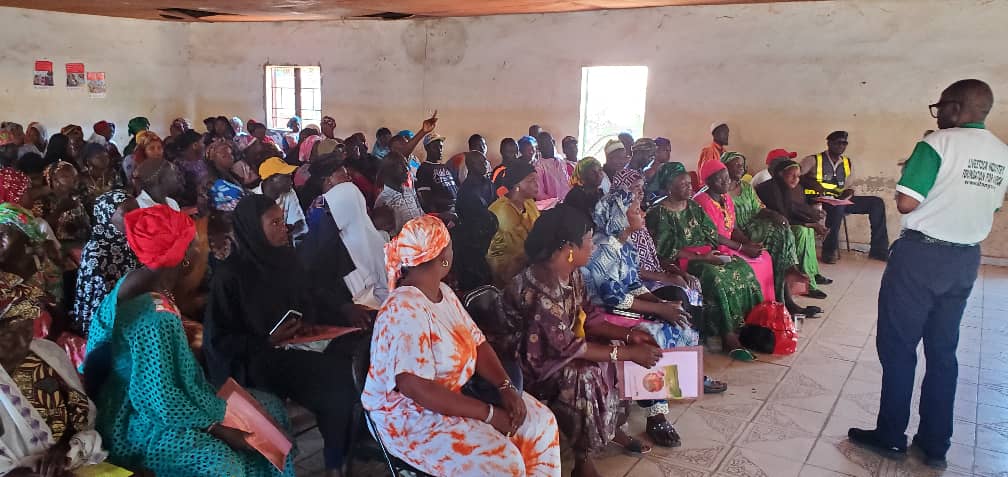
Dr. Stephen Adejoro addressed the effects on poultry health and nutrition, as well as a case study on fowl cholera vulnerabilities to production and livelihood in a humid tropical climate. Climate change, according to him, is the sum of all statistical distributions of the state of the atmosphere on a scale of hotness, coldness, wetness, dryness, windiness, cloudiness, volcanic eruptions, glacier formation, and storms.
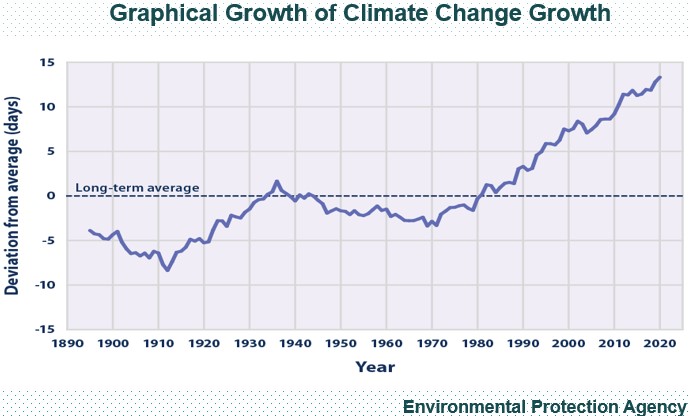
Based on the chart above, it was determined that climatic growth rose from early 2000 to the present, and Dr. Adejoro stated that many poultry actions contribute to climate change. Manure disposal, mortalities disposal, ammonia emission, and shallow river contamination are among the actions listed. The effects of climate change on the poultry sector were then discussed. Heat stress, water quality and contamination, recurring outbreaks, housing faults, immunization failures, high raising mortality, low yield and productivity, profitability, and sustainability are only a few of the issues mentioned.
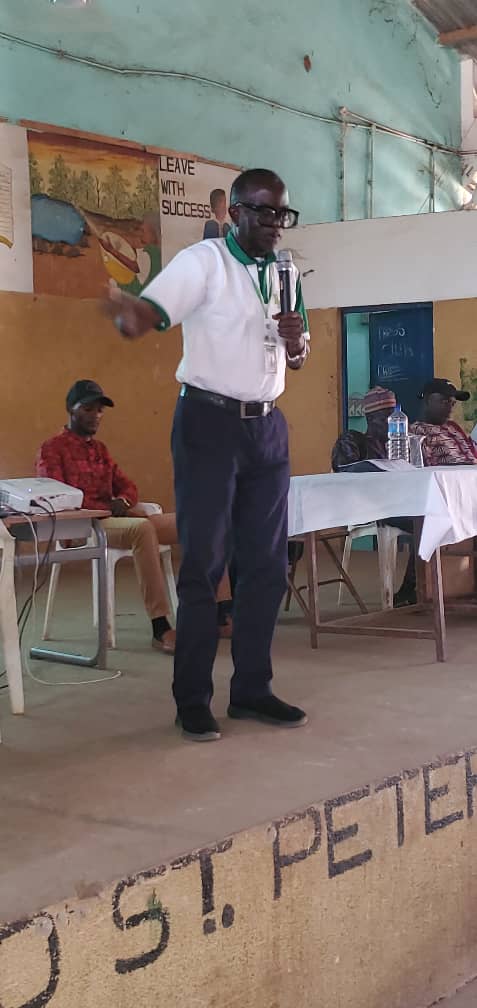
The Fowl Cholera pandemic, which was the main topic of his discussion with the participants in Lamin and Sibanor, is one of the outcomes of climate change vulnerabilities in the poultry business. One of the participants’ concerns about the disease was the symptoms that farmers can see when their fields are infected with Fowl Cholera. Facial swelling, swollen ear, swollen wattles, swollen foot, and joint swelling are among the symptoms reported. Then, a case study on the use of chemotherapy and dietary changes in the management and treatment of poultry cholera outbreaks was provided.
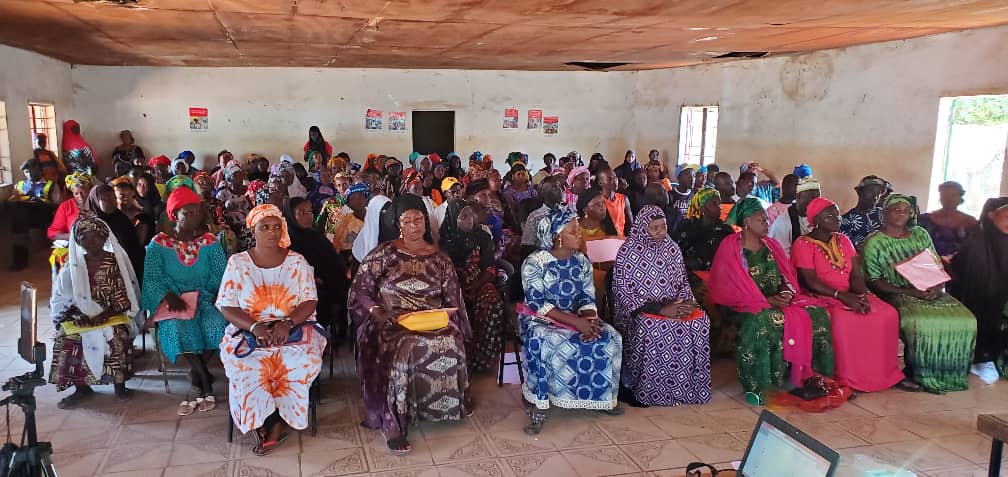
According to the case study provided, dietary changes to energy and methaionine levels reduced the mortality of farms impacted by Fowl Cholera. He subsequently determined that Fowl Cholera is a chronic chicken illness that can persist throughout the life cycle of a flock when endemic and occurs in a 12-week cycle beginning at age 26 to 28 weeks.
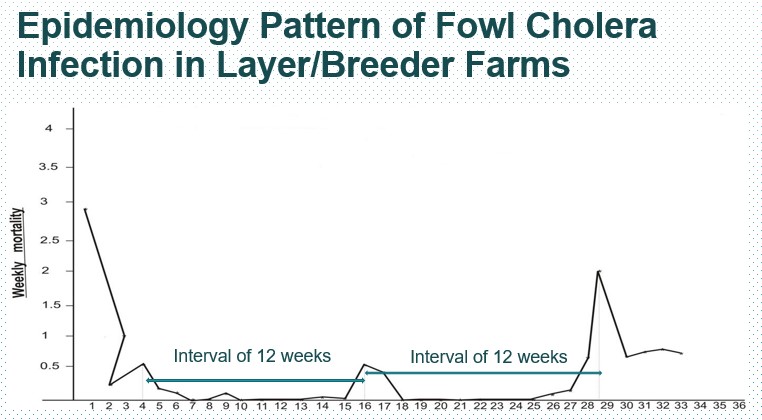
A focus group discussion session was organized during the training programme period to measure or capture the needs of the participants and also check the situation of the poultry industry in The Gambia before the training programme, where the participants were divided into different sub-groups and two individuals were selected in each sub-group to pilot the discussion session of their group. As limiting factors, the following information was acquired at the end of the training session:
- Feed for chickens is expensive.
- Inadequate laboratory facilities
- Inadequate knowledge of poultry practices
However, the one-day free-day program dramatically improved participants’ knowledge of chicken rearing and farmer issues.
The LIFA team identified that the majority of the issues confronting The Gambia’s poultry business are due to the country’s failure to effectively utilize its considerable resources. The bountiful blessing of numerous resources that may be found in the country to promote the poultry business was identified during LIFA’s stay in The Gambia during the training program. The LIFA team identified several others.
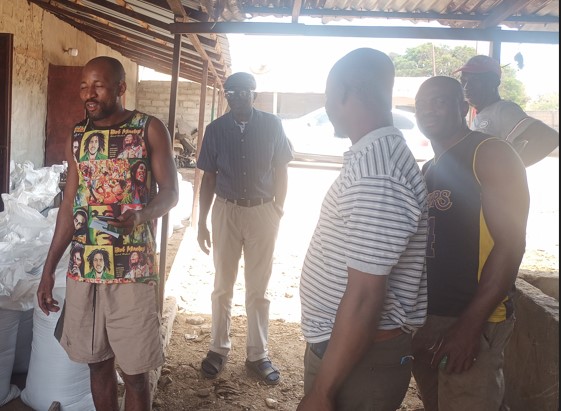
On a team excursion in The Gambia to obtain raw materials that The Gambians aren’t using, the team met Mr. Kingsley, a Nigerian who processes trash fish by the riverside for other uses, even exporting it to neighboring nations. Kindly click on the link below to view Mr. Kingsley’s interview with LIFA (https://drive.google.com/file/d/1hN1nxgHqX1AAWvYHjuEquiVxBKOkRFyp/view?usp=drive_link).
LIFA will continue to be proactive in organizing trainings for Livestock Farmers/Stakeholders towards improving the Livestock Industry in Sub-Sahara Africa. We are available for collaborations in areas that may require education, training, advocacy, awareness, and policy implementation.
